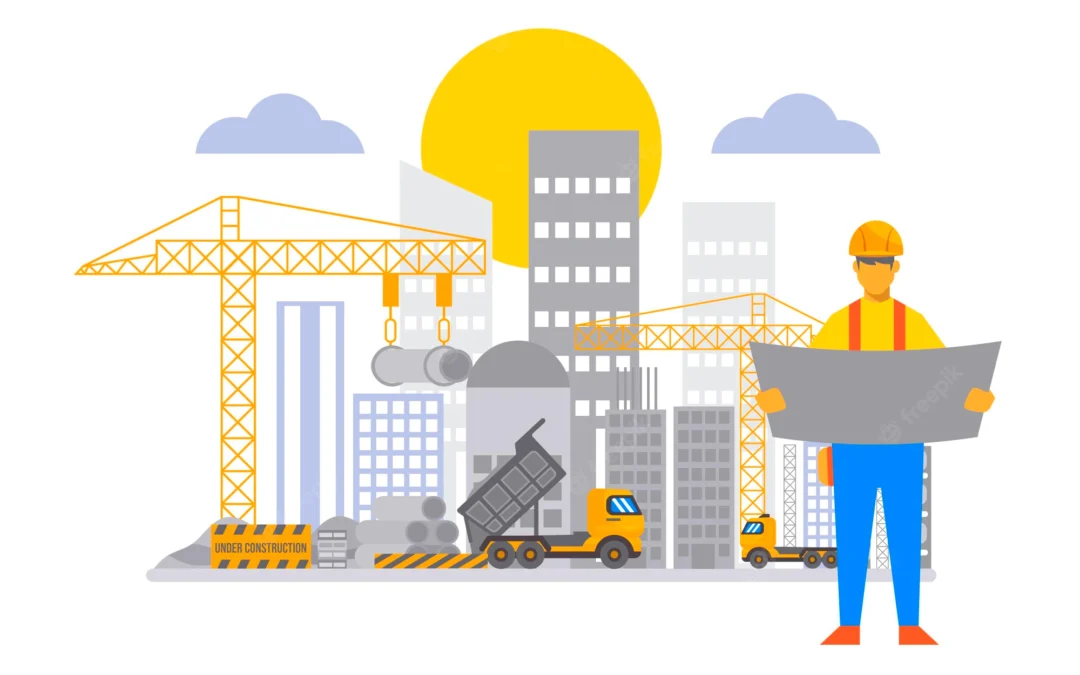What is Design Build?
Design-build is a project delivery method that has gained popularity in the concrete industry in recent years. It involves a single entity – usually a general contractor or construction manager – taking responsibility for both the design and construction phases of a project. This approach differs from the traditional design-bid-build method, in which the design and construction phases are handled by separate entities.
Benefits of Design Build
There are several benefits to using the design-build approach in the concrete industry. One of the main advantages is the increased efficiency and collaboration that comes with having a single entity responsible for both the design and construction phases. This allows for better communication and coordination between the various stakeholders, as well as the opportunity for value engineering – the process of identifying and implementing cost-saving measures – to be incorporated into the design phase. Another benefit of design-build is the ability to fast-track the construction process. By starting the construction phase before the design is completed, the contractor can begin preparing the site and purchasing materials, which can reduce the overall construction timeline. This can be especially useful in the concrete industry, where the curing process for concrete can take several days or even weeks.
Design-build also offers the opportunity for cost savings. With a single entity responsible for both the design and construction phases, there is less room for miscommunication or misunderstandings that can lead to cost overruns. Additionally, the design-build team can work together to identify cost-saving measures and negotiate better prices for materials and labor. However, there are also some potential drawbacks to using the design-build approach in the concrete industry. One concern is the potential for conflict of interest, as the design-build entity may have the incentive to prioritize cost savings over quality. It is important for the owner to carefully review the qualifications and track record of the design-build team, and to include provisions in the contract to ensure that quality is not compromised.
Another potential challenge is the lack of competition, as the design-build approach involves selecting a single entity to handle both the design and construction phases. This can limit the owner’s ability to obtain competitive bids and potentially drive up costs. It is important for the owner to carefully evaluate the qualifications and track record of the design-build team, and to include provisions in the contract to ensure transparency and accountability. Despite these potential drawbacks, design-build can be a valuable delivery method in the concrete industry when used properly. It offers the potential for increased efficiency, cost savings, and fast-tracked construction, but it is important for the owner to carefully evaluate the qualifications and track record of the design-build team and to include provisions in the contract to ensure quality and transparency.
The Key to Successful Design Build Projects
One key to successful design-build projects in the concrete industry is effective communication and collaboration. It is important for the owner, design-build team, and other stakeholders to work together and establish clear lines of communication from the start. This can help to ensure that the project stays on track and is completed on time and within budget. Another important factor is the use of technology. The use of project management software, 3D modeling, and other advanced technologies can help to streamline the design and construction process and improve communication and coordination among the various stakeholders.
In conclusion, design-build can be a valuable delivery method in the concrete industry, offering the potential for increased efficiency, cost savings, and fast-tracked construction. However, it is important for the owner to carefully evaluate the qualifications and track record of the design-build team, and to include provisions in the contract to ensure quality and transparency. Effective communication and collaboration, as well as the use of advanced technologies, can help to ensure the success of design-build projects in the concrete industry.
Design Build vs Traditional in the Concrete Industry
Design-Build:
- Single entity (usually a general contractor or construction manager) responsible for both design and construction phases
- Increased efficiency and collaboration due to better communication and coordination between stakeholders
- Opportunity for value engineering to be incorporated into the design phase
- Ability to fast-track construction process by starting construction before design is completed
- Potential for cost savings through the identification and implementation of cost-saving measures and the negotiation of better prices for materials and labor
- Potential for conflict of interest if the design-build entity prioritizes cost savings over quality
- Limited competition, as only one entity is responsible for both design and construction phases
Traditional (Non-Design-Build):
- Separate entities responsible for design and construction phases
- Increased coordination and communication may be necessary between design and construction entities
- Value engineering may not be incorporated into the design phase until later in the process
- Construction timeline may be longer, as construction cannot begin until the design is completed
- Increased potential for cost overruns due to miscommunication or misunderstandings between design and construction entities
- Greater competition, as multiple entities may bid on the design and construction phases
- Greater transparency and accountability, as the design and construction phases are handled by separate entities.
Silver Spur Concrete is a full service design-build contractor in Houston that offers distinct advantages over contractors who do not provide start to finish services.
If you have any questions or would like to discuss your project, contact us at (713) 482-7712
In addition to our commercial concrete contracting services, we also provide turnkey metal building solutions for clients in the Houston, Tomball, Magnolia, Navasota, Woodlands, and surrounding communities.


Recent Comments